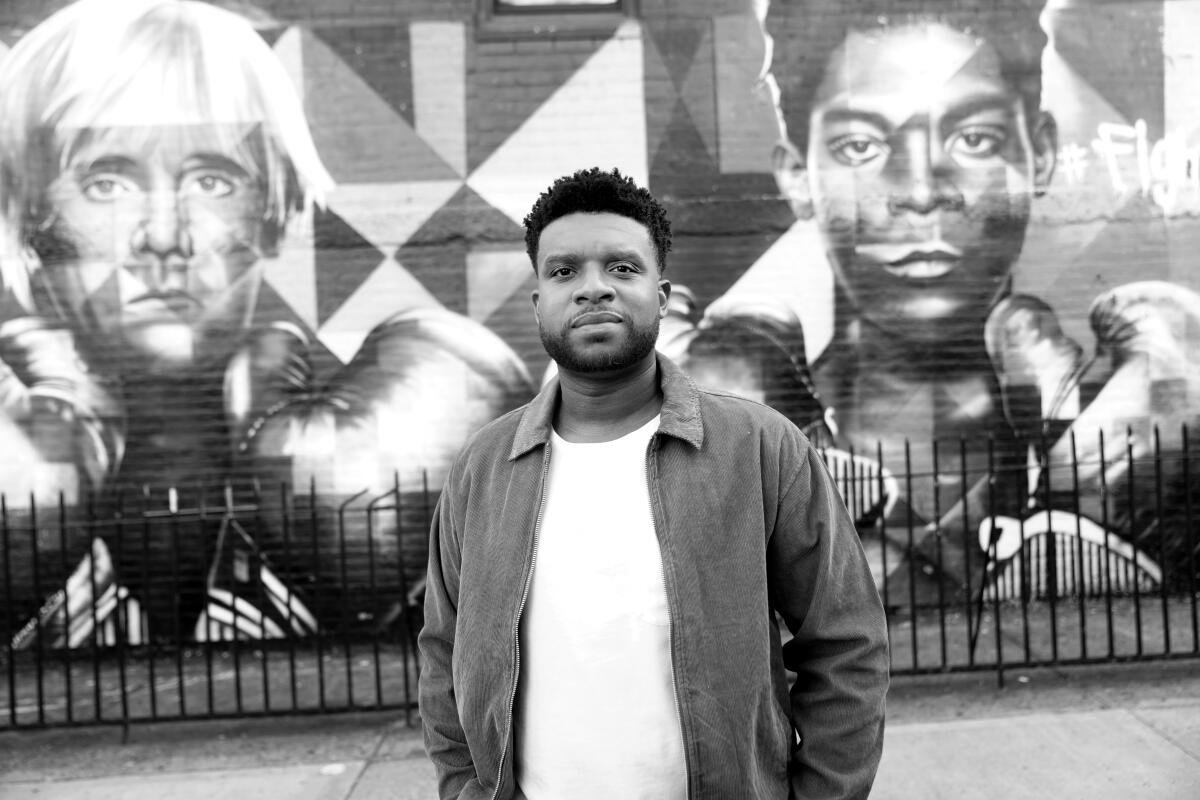Feedback: A white gatekeeper listens to Black playwrights

Thank you for Ashley Lee’s fabulous piece on Black playwrights [“An Overdue Conversation,” Oct. 18]. It is so important that their voices be heard. As a white male artistic director (gatekeeper) myself, I am very aware of my position and privilege and continue to learn.
This got me thinking again, and opened my eyes to things I need to look at for myself. That article is a true service to our community.
Stephen Sachs
Los Angeles
::
As a local African American woman playwright, I appreciated the reflections of fellow Black playwrights who are pushing back against the white gaze in theater production.
Over the last several years I have independently produced my own Black women-centered plays, after rejection and silence from the L.A. theater establishment.
The experiences of Radha Blank and company are pro forma in an industry that thrives on voyeuristic consumption of “Negro” authenticity and flavor-of-the-month fetishism at the expense of progressive voices.
That said, the regime of white gatekeeping is twofold. The dearth of female theater critics of color at major news outlets like The Times also contributes to the marginalization of Black creatives who aren’t anointed by predominantly white theaters.
The Times rarely reviews or boosts Black productions at small, 99-seat and under theaters, and is thus just as complicit in the industry’s systemic racism and sexism as elite white producers.
Sikivu Hutchinson
Los Angeles
If not now, when?
Critic Charles McNulty does an impressive pre-holiday turn as Scrooge in calling the Tony Awards “embarrassing” in a pandemic [“The Tony Awards: Now Is Not the Time for This,” Oct. 16].
His logic — the Broadway community is artistically paralyzed and “on the edge of poverty,” so let’s take away the one bedrock source of acknowledgement and pride left to it — is hard to grasp, much less accept.
As the father of a Broadway sound designer and a great respecter of the conscience of David Henry Hwang, the co-chair of the American Theatre Wing, I ask McNulty: Should we really let the perfect be the enemy of the good, at the further expense of the theater’s finest?
Humbug.
G. Andrew Lundberg
Pacific Palisades
An art museum needs its art
The sale of artworks by art museums, such as the Baltimore Museum of Art, as reported by critic Christopher Knight [“Sale Rips Hooks Out of the Wall,” Oct. 20] in order to fund the cost of operation is outrageous.
Works of art are the sole purpose of the museum. If it needs more support it should make its case to donors, sponsors, members and patrons not by selling its reasons for being.
Once any institution sells out its prime purpose, it no longer has any claim to public support.
Allen J. Manzano
Carlsbad
Where are the Ken Burns documentaries?
Regarding “As PBS Hits the Big 5-0, Here are Some of its Best Shows” [Oct. 18]: Robert Lloyd’s list is of course his, but for my money — and PBS gets some of it — Ken Burns’ documentary series “The Vietnam War” was therapy.
It should be required viewing for every high-schooler before graduation.
David Reid
Hollywood
::
As a huge fan of PBS, I was incredibly disappointed in television critic Robert Lloyd’s list.
Although I agree on “Frontline,” “Sesame Street” and “Cosmos,” Ken Burns has produced a multitude of incredible documentaries such as “The Vietnam War” to name just one.
You also missed three awards-worthy programs in your review. “Nova” and “Nature” are extremely well produced and educational on a weekly basis. “Independent Lens” is just as noteworthy as “Frontline.”
In fact, “Nova” and “Nature” are the reason I’ve placed PBS in my will (and I’m by no means a wealthy person). I want them to keep producing these programs to teach future generations.
Jasmine Moscona
Carson
Public TV and the local model
Since its founding 50 years ago, PBS has indeed aspired to a higher cultural and informational standard for the American people. Now, in these challenging times, public television and public radio have an opportunity, if not an obligation, to address a crisis that is pulling Americans apart.
According to the UNC School of Media and Journalism, over 1,300 communities nationwide are no longer covered by a daily newspaper and have become news deserts. This is due to competition from internet and social media platforms, which are eviscerating newspaper business models. A lack of access to credible and comprehensive local news undermines democracy, whose foundation rests on an informed populace. Public broadcasters nationwide should be required to help restore the journalistic commons by expanding their mission to operate local online news outlets in return for the public tax dollars they currently receive. Unfortunately, many local online news sites that have emerged in the wake of failed newspapers have not been able to support themselves as commercial enterprises. The nonprofit, publicly funded model for public broadcasting has delivered quality results for decades and can do the same for local online news.
Though many public stations may be institutionally resistant to embarking on such a new venture, there are numerous turnkey digital software solutions currently available that public stations can utilize to start and operate a local online news site without major expenditures or staffing. Expanding their mission beyond broadcasting to local online news offers public stations the opportunity to grow and diversify their audiences, attract additional revenue and update their mission to solve a contemporary problem for which they are uniquely well-qualified.
Lloyd Trufelman
Katonah, N.Y.
More to Read
The biggest entertainment stories
Get our big stories about Hollywood, film, television, music, arts, culture and more right in your inbox as soon as they publish.
You may occasionally receive promotional content from the Los Angeles Times.











